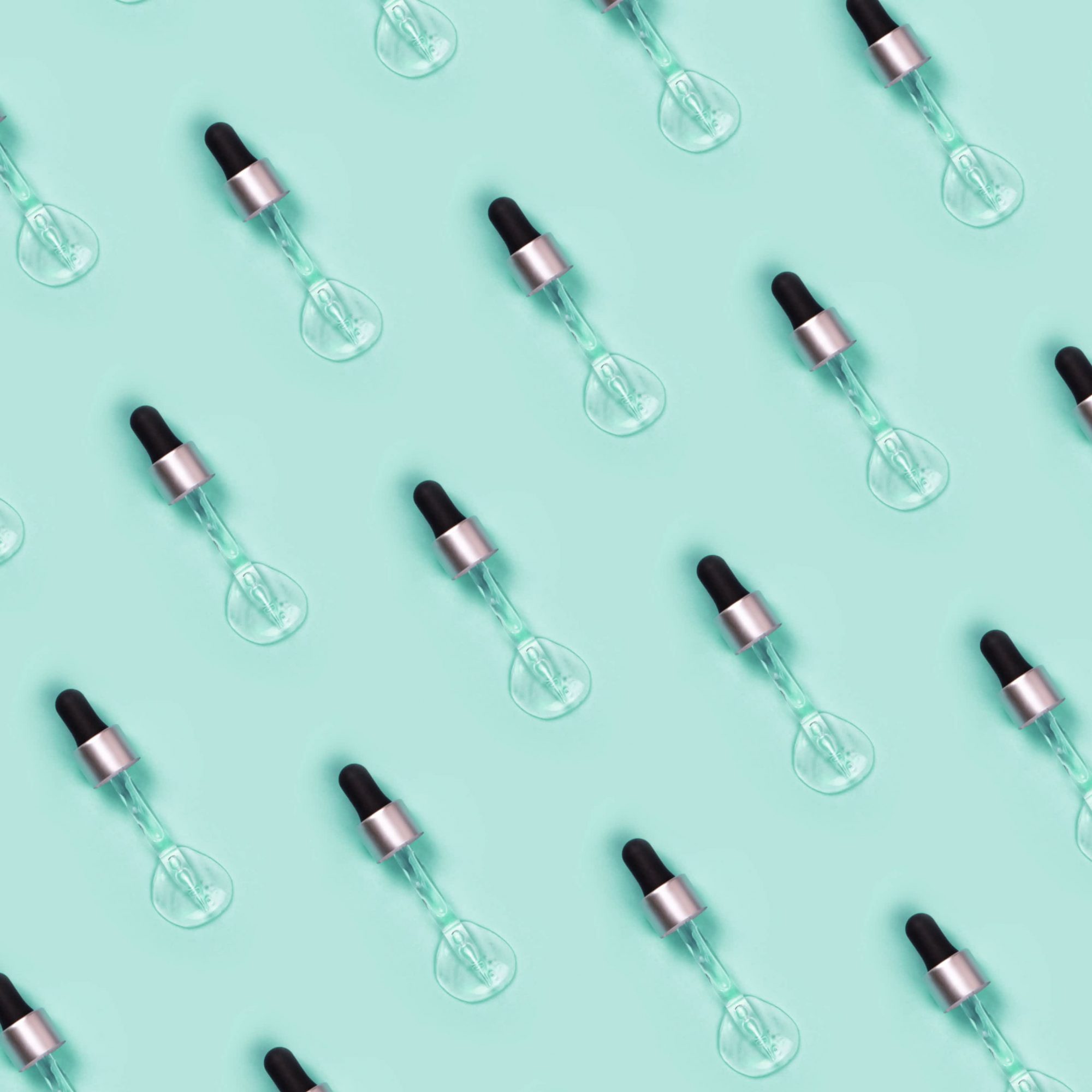
- POPSUGAR Australia
- Beauty
- Heard of Astaxanthin? It’s 65 Times More Powerful Than Vitamin C When Used in Skincare
Heard of Astaxanthin? It’s 65 Times More Powerful Than Vitamin C When Used in Skincare

Skinimalism is still a reigning trend for 2021. The pared-back nature of this skincare trend means people are using fewer products in their beauty regimes while also becoming more decisive about what they do use. Vitamin C is a common essential for many people, used in their morning skincare routine to brighten skin and help protect against sun damage.
But what if we told you there was a far superior antioxidant that surpasses the efficacy of vitamin C? The thought is almost too wild to consider but it’s true. According to leading Australian dermatologist and founder of Bespoke Skin Technology, Dr Katherine Armour, Astaxanthin is nearly 65 times more powerful than vitamin C.
“I like to think of Astaxanthin as the younger, far sexier cousin of vitamin C,” Dr Armour told POPSUGAR AUSTRALIA. “It is derived from fresh and salt water sources such as seaweed and red algae. Astaxanthin is a powerhouse at combating wrinkles, unwanted pigmentation and sun damage. When topically applied, brighter, more luminous skin is a given.”
We chatted to Dr Armour about this wonder ingredient and picked her brain on the must-have products in your pared-back routine so you’re nourishing your skin with the highest quality ingredients that are effective and make a noticeable difference.
POPSUGAR Australia: Skinimalism has proved to be popular again this year, so what products would you recommend in a modest routine?
Dr Katherine Armour: Reducing the number of products that we use is obviously important in terms of our carbon footprint. We can do even better here if we choose products with recyclable packaging. You can easily reduce the number of products that you use and still maintain fabulous skin if you choose your active ingredients carefully.
Reducing the number of products that we apply to our skin also reduces our likelihood of developing allergic or irritant reactions to the fragrances, preservatives and actives in our skincare, as we’ll be exposed to fewer allergens.
The most important skincare products/ingredients to continue using are:
Broad-spectrum SPF sunscreen: This is obviously a no-brainer as it prevents sun damage, general skin ageing and skin cancers. It’s not fancy, but, we all need to do this every day, all year round. 80-90 percent of UV rays still penetrate the Earth’s surface on cloudy days. So, don’t be lulled into a false sense of security in winter. You’ll still be ageing your skin if you’re not sun protecting.
Niacinamide (vitamin B3): After sunscreen, most dermatologists will tell you that this is their favourite cosmeceutical ingredient. It is a multi-tasking superhero. Niacinamide’s anti-ageing effects are legendary as it:
- Stimulates new collagen production in the dermis, combating wrinkles
- Supports the skin barrier and skin moisturisation by stimulating the production of lipids (ceramides) and proteins
- Inhibitis sebum production, leading to reduced acne, reduced pore size and improved skin texture
- Is anti-inflammatory, helping to improve acne, rosacea, skin redness, and anti-ageing qualities
- Inhibits protein glycation, preventing skin yellowing
- Prevents UV induced immunosuppression in the skin and combats solar keratoses
Green tea (Camellia sinensis): This is well tolerated in sensitive skin types and is a potent antioxidant that provides UV protection, reduces collagen breakdown by inhibiting the production of matrix metalloproteinases and combats unwanted pigmentation. Green tea is also anti-inflammatory and useful in the treatment of acne and rosacea.
Alpha-hydroxy acids: Gentle chemical exfoliants, such as lactic acid, which brighten the skin, target unwanted pigmentation and congestion, and leave the skin plumped and silky feeling.
And, ASTAXANTHIN!
PS: How does Astaxanthin compare to vitamin C?
KA: I like to think of Astaxanthin as the younger, far sexier cousin of vitamin C. It is derived from fresh and saltwater sources such as seaweed and red algae. For so long, we have fixated on vitamin C (ascorbic acid and its derivatives) as being the be-all and end all in terms of antioxidants.
Don’t get me wrong, vitamin C is a fabulous brightening and collagen-stimulating ingredient but it is difficult to work with and is notoriously unstable in preparation. As a dermatologist, it is one of the most frequent causes of periorificial dermatitis and skin irritation that I see.
Astaxanthin is at least 65 times more potent than vitamin C in its antioxidant potency. Free radicals be gone! Astaxanthin is a powerhouse at combating wrinkles, unwanted pigmentation and sun damage. When topically applied, brighter, more luminous skin is a given.
I know it’s controversial to knock a well-established ingredient like vitamin C but my decision to formulate with Astaxanthin rather than vitamin C comes from its potency as well as my clinical experience as a dermatologist. You’ll experience the startling benefits of Astaxanthin in our Luminosity Serum ($145), Radiance Reset Anti-Pollution Cream Cleanser ($83.95), and something very, very special which will drop a little later in the year.
PS: What skin concerns does it target?
KA: Astaxanthin targets unwanted pigmentation, wrinkles, age spots, dryness and irritation. So, it brightens, smoothens, and plumps the skin.
Astaxanthin also protects against DNA damage to the skin caused by UV exposure. It improves the ability of cells exposed to UV radiation to repair DNA damage. In turn, this may slow the growth of cancer cells. Further research is needed to prove this.
PS: What products do you recommend for people wanting to try Astaxanthin?
KA: Astaxanthin is contained in Bespoke Skin Technology’s new Luminosity Serum, Radiance Reset Anti-Pollution Cleanser, and a new all-in-one product which will drop very soon. It’s also contained in products from the AO skincare range.
PS: Are there are guidelines around using this ingredient?
KA: Apart from the numerous beneficial effects of astaxanthin on our skin, it is also gloriously easy to use. It is suitable for all skin types and does not interact with other cosmeceutical ingredients.
For more information on this wonder ingredient, head to the Bespoke Skin Technology website.



